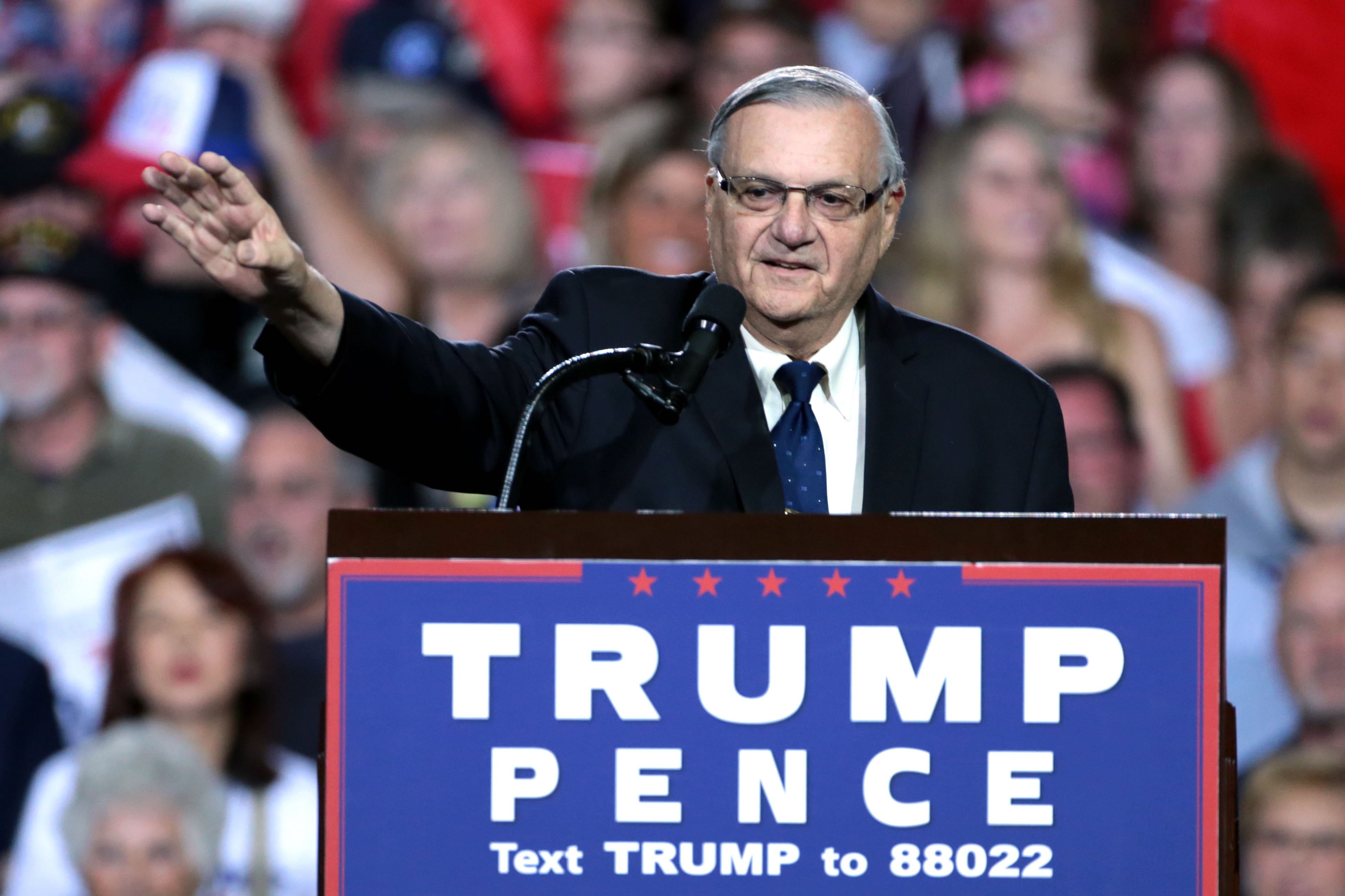The Arpaio Pardon
President Trump issued his pardon of former Sheriff Joe Arpaio apparently without a Justice Department recommendation or even consultation, according to various outlets citing unnamed officials. It is a question that should be asked.

Published by The Lawfare Institute
in Cooperation With

President Trump issued his pardon of former Sheriff Joe Arpaio apparently without a Justice Department recommendation or even consultation, according to various outlets citing unnamed officials. It is a question that should be asked. Was anyone consulted at all? If so, what was the response?
The pardon statement issued by the White House this evening was brief, and damningly so. Assume that a president wishes to issue a pardon he knows to be controversial. This seems to be such a case: the pardon of a law enforcement officer convicted of willfully defying a court order, issued only weeks after the court decision and well before the appeal the lawyers announced or any sentencing. It would seem that in exercising the power the President would anticipate the questions his highly unusual and controversial pardon raises and attempt to answer them. An example of such an undertaking is George H.W. Bush’s 1,346-word statement explaining the pardon of the Iran-Contra defendants. This White House could muster in the Arpaio case only two paragraphs paying tribute to the former Sheriff’s “service” to the nation and citing his age (85).
Notably missing from the White House statement was the reason Mr. Trump gave at his political rally in Phoenix. He indicated then that Arpaio was “convicted for doing his job.” In other words, he suggested then, as he did not in the official pardon statement, that there was something defective in the conviction. One can only speculate about the reasons for the omission. The White House Counsel and others may have advised Trump that, there being no apparent, much less established, basis for an attack on the conviction, it was best left out of the statement. Any suggestion that the court meted out an injustice to Arpaio would also have invited the question of why the President did not allow an appeal to go forward. After all, if the injustice was so grave, then he would have to have some confidence that an appeal would be successful.
Trump went ahead with the pardon, and the reasons having nothing to do with injustice, or the public welfare, can explain it. He has political problems with his right flank—with the Steve Bannons and the Sebastian Gorkas who are loudly protesting the ascendancy in the White House of Republicans lacking their revolutionary vision. The President made clear in his theatrical preview of the pardon at the Phoenix rally that the Arpaio pardon works well as a gesture to this political constituency—a reaffirmation that he remains the candidate they voted for who will keep what Gorka, in his resignation letter Friday, called the “MAGA promise.” Trump asked the Phoenix crowd if they liked Sheriff Joe, and they roared back their approval. Now he has delivered.
It all seems to come down to that: Trump disrupted the operation of the criminal justice process to score a political point, and he believes that the “complete power to pardon” gives him all the space he needs for this maneuver and requires of him only the most pro forma, meaningless explanation of his action. He has managed, however, to make a very clear statement about the “rule of law” in his government, and he has miscalculated if he somewhat imagines that it will not come back to haunt him.



.png?sfvrsn=48e6afb0_5)

